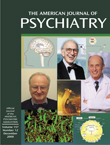An occupational hazard of psychiatry is the tendency to see friends and family through the lens of psychopathology. The comparable ailment for a writer is the compulsion to puzzle out the craft behind a book’s emotional effects and then to stand in a condescending (which is also to say self-hating) relationship to any writer’s work whatsoever. About this time last year, immersed in revising a novel, I developed this nausea in the face of storytelling.
Desperate, I turned in my reading to a text that seemed sufficiently distant, Robert Alter’s annotated translation of 1 and 2 Samuel, The David Story. Knowledgeable reviewers had praised Alter’s work. I liked that the book had three lines of footnote for each line of narrative—it seemed that overanalysis was part of the game, so that my ailment would put me on the same plane as other readers.
The book had a tonic effect, not least because the literary conventions of the story of David are so different from our own. One has a sense of great authorial freedom. Milan Kundera, in
The Art of the Novel (1), praises Cervantes and Rabelais for the existential quality of the journey in their picaresque novels: characters go where they please, without regard to ossified expectations regarding a story’s arc, or in defiance of them. The Books of Samuel have this quality in spades—seemingly minor details covered at length, on the writer’s or redactor’s whim, and then a rush through climactic action.
To be sure, some of the herky-jerkiness is due to lacunae in the text and to the process of emendation over centuries. Some is due to a wish to cover local politics in the midst of what we, distant from the events, consider the core story. But some is clearly planned, and so moving as to make one despair of mastering the writer’s craft.
Look, in any translation, at 2 Samuel 11:2–6, King David’s first encounter with Bathsheba, half a novel in five sentences. David is home from the war. Time stops. It is evening. David arises from his bed. From the roof, he sees a woman bathing. He has her brought to him. He lies with her. Time jumps forward: She is pregnant. David sends for the woman’s husband, his own general, Uriah, in order to urge Uriah to sleep with Bathsheba.
The five sentences have an impact that is all the greater for their appearing after an account of shifting military alliances. The domestic developments are on a par with the international. David has begun a liaison that will produce a royal line. His transgressions will lead to punishment for his House and the House of Israel. The chapter continues for only 20 more verses. After telling us how David arranges for Uriah to die in battle, the narrator develops character by attributing to David words of breathtaking hypocrisy: “for the sword devours sometimes one way and sometimes another.” In a single verse, David marries Bathsheba, a son is born, and (the narrator is able to tell us) God sees David’s act as evil. Chekhov, celebrated for his bold license with point of view, pales by comparison.
Alter’s footnotes slow the reading, forcing reappraisal of familiar stories. A professor of language and literature at Berkeley, Alter mostly provides tools: geography, demography, explications of multiple meanings of Hebrew words. The effect is to restore the Bible’s scale. Recent archaeological finds have tended to diminish David’s stature—the nation he united was small—but the claims in Samuel are mostly not grand to begin with. For much of his life, David is less a ruler than a man on the run from powerful forces.
Where Alter excels is in explicating parallels, not just broad repetitions of sexual indiscretion and murder but also minor textual mirrorings, as when a verb in Samuel reflects the language in Exodus. (To succumb to the psychiatrist’s ailment: the narrative turns on contrasts and later parallels between Saul’s intractable depression and David’s more resilient grieving.) The text’s compactness is due in part to the fact that from the moment history was set down in words, the culture held texts in common to which reference could be made in literary shorthand. Since Genesis, writing has endured or enjoyed an anxiety of influence.
Alter’s book is restorative because it refreshes the Bible. For me, it refreshed the process of reading altogether. As commentator, Alter is unembarrassed in his intellectual aspirations, a pleasure at a moment when even our great writers have succumbed to a degree of dumbing down. And Alter is admirably single-minded in his focus on literature, which is to say he makes no religious demands on the reader. Here is a version of Biblical narrative that would make a fine Christmas or Chanukah gift for the atheist on your list.

